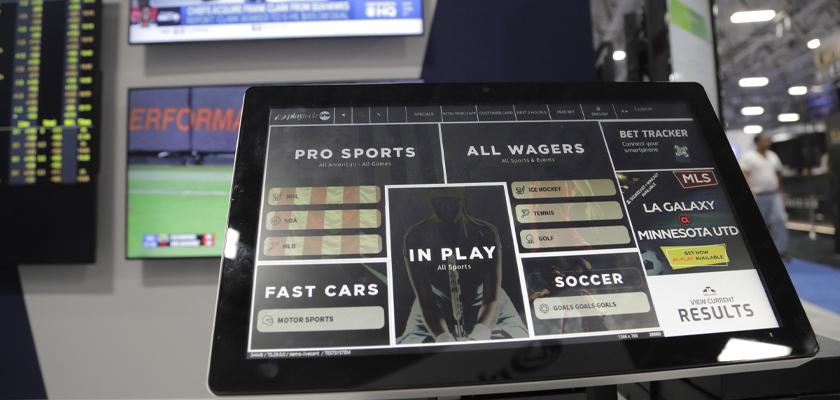It’s not often a metaphor becomes reality. But the Alabama legislature literally has a political football on its hands.
We’re talking about legalized sports betting, part of a comprehensive gambling bill that State Sen. Greg Albritton (R-Atmore) hopes to pass. Nineteen states have jumped on the legal sports betting bandwagon since the US Supreme Court struck down a federal law prohibiting it in 2018. New York, which only started making online gambling available in January, saw $1.6 billion wagered in the first month. That generated a whopping $90 million for the Empire State. Neighboring Tennessee had nearly $3 billion wagered on sports in 2021. Estimates are that $8 billion was bet on this year’s Super Bowl nationwide. While the topic of gambling has bounced around our state legislature for decades like a fumble on a wet field, the method of placing bets has changed. So, the goalposts have moved.
Meanwhile, the House plans to vote on a “clean lottery” bill (basically just the lottery) on March 29. If it passes, Albritton plans to add some amendments when it arrives in the Senate.
Right now, 45 of 50 states have lotteries. Cross the border out of Alabama and generally you’ll soon see a store or gas station selling lottery tickets with plenty of Alabama tags in the parking lot. Proponents of the bill argue that the state is leaving a lot of money on the table, only to see it go out of state.
Alabama Unfiltered: Alabama's Gambling Bills: Montgomery's Power Grab
Alabama’s Constitution bans lotteries and gambling. Electronic bingo parlors have developed thanks to local constitutional amendments, though the Alabama Supreme Court has narrowly interpreted those amendments in recent years. The last statewide vote on a lottery took place in 1999 when state voters rejected it.
Albritton contends that Alabama already has gambling; he’d simply like to see the state regulate it and tax it.
“We don’t really know how many gaming facilities we have in the state,” Albritton said. “It’s growing without state control or enforcement. The legislature has to get some control on the industry. It’s here so we’ve got to control it and tax it.”
He sees the potential of sports betting as something that could generate a great deal of money for the state. In recent years, online sports gaming has exploded, with commercials for companies like Draft Kings and Fan Duel dominating television broadcasts and sports talk radio. Revenue from those two companies was nearly $4 billion in 2021.
The argument for a comprehensive gambling bill is basically that gambling is gambling, whether you’re scratching a lottery ticket, playing a slot machine or betting on a football game. And since it’s already here it should be taxed. Albritton estimates gaming could generate around $800 million for the state, and perhaps $1 billion with sports betting. Revenue would be used for scholarships and to address issues like mental health, high-speed internet, rural health care, improving prisons, and infrastructure maintenance on roads and bridges.
Albritton has seen the effect a casino has on his own town of Atmore. Since Wind Creek Casino opened just off I-65, what had been acres of undeveloped land surrounding the area is now filled with restaurants and hotels. In addition, the Poarch Band of Creek Indians donates about $1 million to local schools each year.
House Speaker Mac McCutcheon (R-Monrovia) is skeptical about the chances of a gambling bill this year, saying the issues that doomed the 2021 attempt have not gone away. Senate President Pro Tem Greg Reed (R-Jasper) has also been cautious.
Albritton’s bills passed a Senate committee on March 9, but leadership has not scheduled a floor vote on the bills.
To connect with the author of this story, or to comment, email news@1819news.com.










